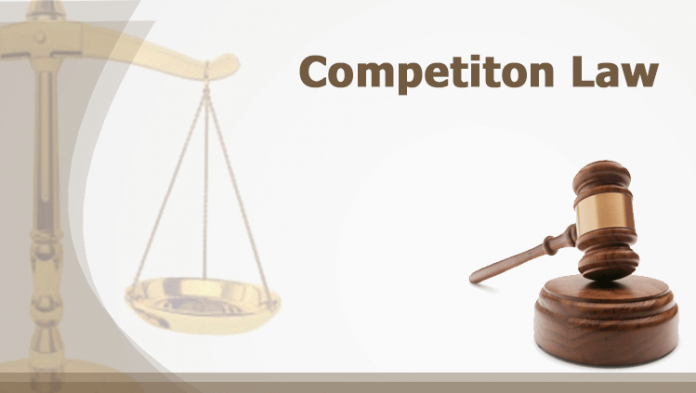This article is written by R Sai Gayatri, from the Post Graduate College of Law, Osmania University. This article talks about the Competition Act 1998 in the EU.
Table of Contents
Introduction
Let us assume that only one company ‘ABC’ is providing the coronavirus vaccine in a country. The ABC company is charging exorbitant amounts from the public as it is the sole provider of the vaccine in the whole country. Since the product being sold here is an essential product people are forcefully paying for it. Don’t you think doing such a thing is unfair on the part of the ABC company? It is indeed. A company taking advantage of its dominant position in the market is considered unlawful and thus some laws keep a check on such behaviour of the companies in the market. The Competition Act, 1998 is one such legislation that describes the anti-competitive acts that are not allowed to be done in the United Kingdom’s markets and it also mentions the consequences the companies shall face for committing anti-competitive offences. Therefore, all companies must know what is permissible and what is not permissible under the Competition Act of 1998.
Background of the Competition Act, 1998
The Competition Act of 1998 replaces the Restrictive Trade Prices Act, 1976, the Resale Prices Act of, 1973 and the Competition Act, 1980. The said Act is made up of 14 schedules, 4 parts and Chapters I and II. Any anti-competitive behaviour of a company within the UK market is restricted by Chapters I and II of the Competition Act, 1998. Anti-competitive conduct is also prohibited by Articles 101 and 102 of the Treaty on the Functioning of the European Union (TEFU). However, the EU rules became dormant within the UK on 1st January 2021 but those UK companies having a cross-border business within the EU will still be considered under the EU competition law as well as the competition law of the concerned member states.
The competition law restricts two kinds of anti-competitive conduct:
- Agreements that entail an anti-competitive character (under Chapter i.e, Article 101 prohibitions).
- Companies that abuse their dominant position in the market (under Chapter II i.e, Article 102 prohibitions).
Significance of the Competition Act, 1998
In the present world, there is cut-throat competition between companies in the market for gaining profits and establishing their brand among consumers. However, due to the high competitive intensity in the market, the companies may sometimes resort to anti-competitive conduct for attaining quick results in their business. Therefore, the Competition Act, 1998 was laid down to control and eradicate the anti-competitive practice from the markets of the United Kingdom. The said Act was put forward to attune the UK and EU policy on the competition law so that it results in the elimination of anti-competitive conduct among the companies of the UK.
In case any EU member state’s company conducts such anti-competitive acts and contravenes the competition law then Articles 101 and 102 of the European Treaty on the Functioning of the European Union will be applied. While Chapter I and Chapter II of the Competition Act, 1998 contain the provisions mentioned in Articles 81 and 82 of the Treaty of Amsterdam.
Anti-competitive conduct under the Competition Act, 1998
As per the Competition Act, the following actions are said to be anti-competitive:
- A company that takes advantage of its dominant position in the market is considered to violate the provisions of the Competition Act, 1998.
- Companies that employ anti-competitive behaviour by having agreements upon production control, fixing the selling price, development control and sharing market information are also penalized under the said Act.
CMA and the Competition Act, 1998
CMA stands for Competition and Markets Authority. The competition law is implemented by the CMA, it examines the acts of the companies to detect whether any anti-competitive behaviour is being put to use.
In case a company displays anti-competitive behaviour then it shall be penalized as per the Competition Act, 1998 in the following manner:
- The directors of the companies which employ such anti-competitive acts in any manner shall be disqualified from their respective positions for a period extending up to 15 years and shall be imprisoned for 5 years.
- The company that violates the provisions of Chapter I of the Competition Act, 1998 shall be subjected to a fine extending up to 10% of its global turnover.
- Any agreement made by a company that infringes upon Chapter I of the Competition Act, 1998 shall be deemed as invalid and unenforceable by the law.
Relevancy of the Enterprise Act, 2002
The Enterprise Act, 2002 deals with cartels. An arrangement through the association of the manufacturers or the suppliers to maintain the prices of products/services at a high level and to restrict competition is known as a cartel. Using cartels, the companies involve no competition amongst themselves rather they try to gain more profits by not reducing the prices collectively. Accordingly, the Enterprise Act, 2002 prevents companies from creating cartels.
The provisions of the Enterprise Act, 2002 facilitate the Competition and Markets Authority to investigate offences and take appropriate action. The action may be taken in the form of disqualification of position, fines or imprisonment. The intensity of the investigation and penalty is proportionate to the offence committed under this Act. The said Act imposes stricter penalties for anti-competitive conduct. For example, the imprisonment period has been increased under the Act. The Act has led to extending the reach of the competition authority for investigating the anti-competitive behaviour of the companies.
They can investigate the whole industry in which a part was involved in anti-competitive behaviour. However, to ensure fair investigations, a Commission Appeals Tribunal (CAT) has been established to which the companies may appeal against the competition authority. The Enterprise Act, 2002 works in sync with the Competition Act to establish a strong competition law in the UK to stop the companies from involving in anti-competitive practices.
Exemption from competition law
Exemptions from competition laws differ across the UK and EU based upon the competition laws being enforced by them. Usually, these exemptions can be found in the form of individual exemptions or block exemptions.
Individual exemption
Under the competition law, an individual exemption from a certain agreement is based upon the Competition Act, 1998 and the European Treaty on the Functioning of the European Union (TFEU). As per the TFEU if any agreement infringes Article 101 then there is an exemption that permits such an agreement to exist on an individual basis by the virtue of Article 103.
Coming to the competition law of the UK, if any agreement infringes Chapter I of the Competition Act, 1998 then there is a possibility that such an agreement may exist based on individual exemption. Earlier, to gain permission for individual exemption of an agreement from Chapter I, a company was supposed to consult the UK Office of Fair Trading. At present, the company itself is required to examine the concerned agreement and decide if it can be individually exempted from Chapter I of the Competition Act, 1998.
Block exemption
This exemption is to block a particular company from participating in certain business activity to ensure that competition is maintained in the market. In case any agreement falls under the conditions which are meant for block exemption then that agreement will be considered exempt from Chapter I of the Competition Act, 1998. Block exemptions establish legal certainty for the companies in a market.
Competition law and business
To gain an undue advantage in the market, certain companies use anti-competitive methods which result in the decrease of competition in the market. Such anti-competitive means include agreements involving production control, price-fixing, bid-rigging, sharing of the market, etc. Because a particular group of companies employ such anti-competitive means, all the companies in the market get affected. Therefore, the government must enforce competition laws to eliminate the anti-competitive acts of the companies.
Given that a company holds a dominant position in the market, there is a possibility that it might abuse its position causing detriment to all other companies/competitors involved in such a market. The Competition Markets Authority (CMA) and the European Commission ensure that market abuse does not occur by enforcing competition laws in the UK and EU. The companies in the market may function fairly and ethically when no anti-competitive activities are employed, rendering a productive ground for the businesses in the market.
Few examples of anti-competitive behaviour of companies
The GlaxoSmithKline (GSK) Case
In January 2016 it was reported that GSK (a pharmaceutical company) was involved in a pay-for-delay case. The said company was under investigation since 2011 for being alleged to have paid various small pharmaceutical companies to delay the selling of their cheaper version of the same drug being manufactured by GSK. The drug in issue was an antidepressant is known as Paxil/Seroxat. Subsequently, the Competition and Markets Authority (CMA) imposed a fine of £45 million on the companies involved for violating the competition law.
Orange – the Telecom Firm Case
Formerly known as France Telecom, Orange, a Telecom company provided anti-competitive discounts to its customers so that they do not switch to other Telecom companies in the market. The said company also employed discriminatory means towards other fixed-line operators that did not have access to and information about the copper line network of France. The Competition and Markets Authority (CMA) stated that Orange had restricted the business clients from shifting to the competitors’ telecom services. Accordingly, it imposed a fine of £254 million for abuse of dominant position in the market.
Franklin Hodge Industries, Galglass & KW Supplies Case
An established group of water tank suppliers in the United Kingdom met to fix the tank prices, rig contract bids and divide customers among themselves between 2005 and 2012. Later, CST Industries (UK) Ltd reported about such arrangement to the Competition and Markets Authority (CMA) which granted immunity to the said company under its leniency policy. However, the other suppliers involved were collectively charged with a fine of £2.6 million among which Franklin Hodge had to pay £2,015,135, KW Supplies had to pay £22,248 and Galglass had to pay £587,926 for the cartel activity.
Somerset Estate Agents Case
The Somerset estate agents were involved in a price-fixing cartel. They agreed to retain the commission acquired from such arrangement among themselves to increase the fee level and gain profits. Subsequently, the local house owners were denied the best possible deals and they ended up paying comparatively high fees. Later, one of the agents involved in the cartel confessed to the Competition and Markets Authority (CMA) as a result a fine of £370,000 was imposed.
Thomas Armstrong (Timber) & Hoffman Thornwood Case
In the above case, two British furniture components suppliers engaged in cartel activity. Both the companies agreed that they shall not compete with each other on pricing matters and they also divided the set of customers to whom they would supply their furniture and avoid a price war. The Competition and Markets Authority (CMA) based on the information received, started investigating the matter and while doing so they found a handwritten list of a rival company’s furniture components in a senior worker’s desk. As a result, the CMA imposed a fine of £2.8 million.
Conclusion
The Competition Act, 1998 is all about applying rules to the companies in a market so that they do not employ anti-competitive means to gain an undue advantage over the other companies. Anti-competitive acts can be broadly classified into unlawful agreements as per Article 101 and abuse of dominant power as per Article 102 of the Competition Act of 1998. The Competition and Markets Authority (CMA) enforces the Competition Act, 1998 and tries to establish a fair market where the companies function in harmony even if competition exists among themselves. The competition law is also advantageous to the common man as it results in the appropriate allocation of prices for goods and services, better quality of products, a wider range of products, increase in innovation and bringing in better competitors at the global level.
References
- https://www.delta-net.com/compliance/competition-law/faqs/what-is-the-competition-act-1998
- https://www.skillcast.com/blog/uk-competition-law-fines
LawSikho has created a telegram group for exchanging legal knowledge, referrals and various opportunities. You can click on this link and join:
 Serato DJ Crack 2025Serato DJ PRO Crack
Serato DJ Crack 2025Serato DJ PRO Crack











 Allow notifications
Allow notifications


